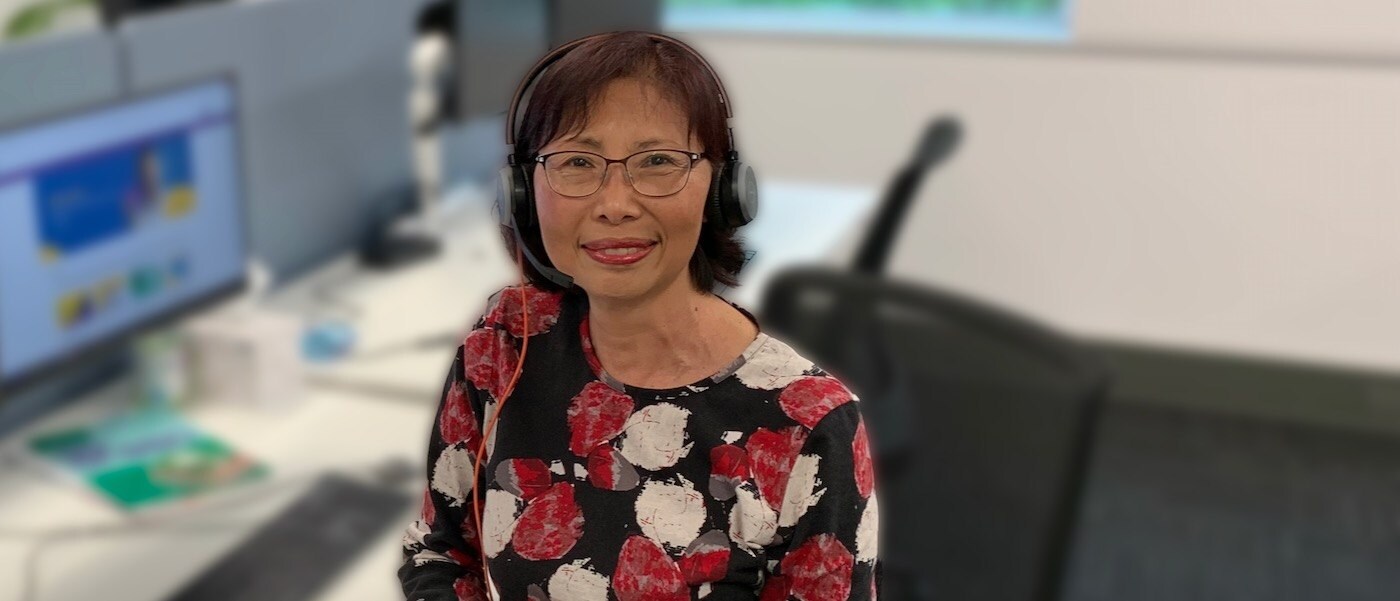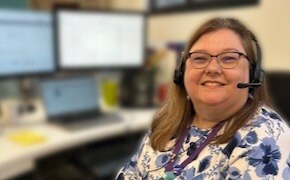Thirty years ago, she learned how to culture cells. Ever since she's helped customers sort out what's causing issues in their cell cultures.

December 19, 2023 | 3 min read
“You’ll learn on the job,” says every career counselor to nervous soon-to-be graduates. Scientists know this especially well. Their toolkits are ever-expanding to accommodate new methods, new protocols and new instruments. All with different bells, whistles and quirks to learn and master.
Learning on the job is indeed a great way to learn, but it doesn’t come without tough moments. As a bright-eyed, fresh university graduate, Grace Yee experienced this firsthand.
“I learned everything about cell culture hands-on,” says Grace. “It was challenging but effective.”
For cell and molecular biologists, knowing how to effectively and efficiently culture cells is as important as a bread baker caring for their sourdough starter or a parent caring for their newborn. Living things require consistent tending. Cell cultures allow scientists to test hypotheses at small, isolated scales which is a huge benefit for biologists.
While Grace enjoyed lab work, after a few years, she was ready for a change and in 1994 joined MilliporeSigma’s Technical Services team. She started supporting customers who were running into roadblocks with their cell cultures and loved helping them through challenges.
She learned on the job again. This time, she learned how to be a detective.
We caught up with her to learn more about her role.
INTERVIEW
Note: This interview was edited for clarity and brevity.
Interviewer: What do you do in your current role?
Grace: I serve as a generalist for a wide variety of customer questions, like everyone on our team. But we also have our specific areas of expertise. For me, it’s cell culture.
Interviewer: What interests you about cell culture?
Grace: Because you’re dealing with something that’s living, you have to constantly ask yourself questions about what the cells need. You must be in tune with the cell line and know how its needs are different or the same from other cell lines you’ve worked with.
Interviewer: Why are cell cultures valuable?
Grace: They allow researchers to study living cells in a tightly controlled environment, allowing them to carefully observe how cells respond to different stimuli, and so much more. They’re a super valuable tool for scientists.
Interviewer: What’s a common problem that customers call in with about cell cultures?
Grace: It’s always some variation of, “My cells are growing poorly.”
Interviewer: How do you figure out what’s causing that?
Grace: Well, I really need to put on my detective hat. I always start from the beginning: How did they arrive?
Interviewer: Right, because I’m guessing if things looked wrong upon arrival, the cell line might not recover from that.
Grace: If the box sat in the mail room over a long weekend, exactly, the cells probably never had a chance. If the cells were healthy upon arrival, that’s when things really get interesting. I have the customer talk me through everything. What conditions are the cells living in? What are they using to “feed” the cells? And on...
Interviewer: Who typically calls with questions about cell cultures?
Grace: Oh, it can be anyone. Sometimes I talk to people who are really experienced in cell culture, while other times I’m working with students who are learning.
Interviewer: Does it take you back to when you were first learning?
Grace: Absolutely. I see my younger self in these scientists. It’s an opportunity for me to guide them in the right direction so they don’t fall into bad habits. Being able to serve as a mentor in that trying moment is incredibly rewarding.
Interviewer: Do you have a piece of advice for someone just getting started in cell culture?
Grace: Always use authenticated cell lines. Also, read up on their cell profile, media and supplement requirements so you have the right expectations for your cells. A good reference for budding cell culturists is the Fundamental Techniques in Cell Culture Handbook. You can also review basic troubleshooting tips.
Interviewer: It’s probably hard to get bored as a detective.
Grace: Exactly. It’s what has kept me around!
About the Series
“Please, Bother Us.”
This simple phrase graced our printed product catalogs for decades. It encouraged researchers to reach out and ask questions or share roadblocks. If a solution didn’t exist, we worked hard — and still do — to get it, find it or create it.
Today, we might not print catalog books, but we continue this legacy of always keeping customers top of mind. When researchers have trouble getting a protocol to work, our technical service is only a click, phone call or message away. From tricky to outright uncooperative experiments, the team is always ready to support customers. In this series, we flip the script on the technical service experts who are normally the ones fielding questions every day to highlight their memorable moments and fascinating interactions with science.
More in the Series
Meet Dr. Shively
Dr. Paula Shively, a longtime technical service expert, guides scientists through challenging moments in the lab. A decade later, she vividly remembers one conversation. See what stuck with her.
To continue reading please sign in or create an account.
Don't Have An Account?